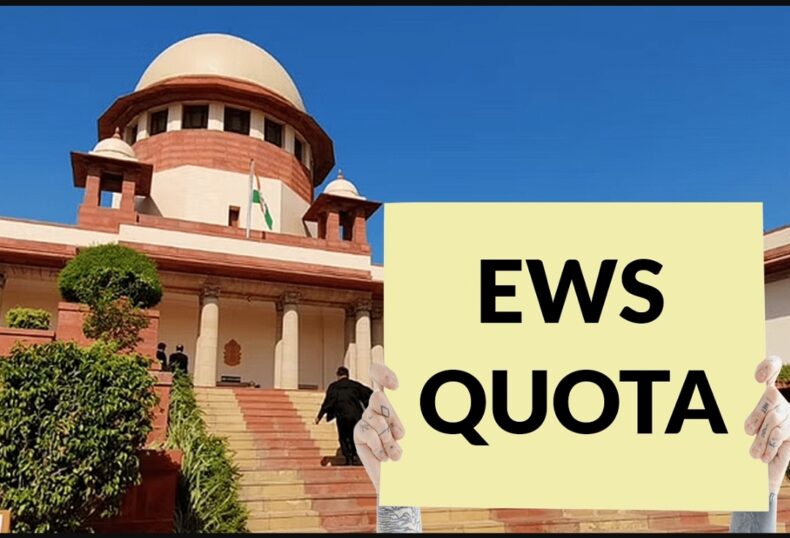Context: A petition has been filed alleging that the 10% EWS reservation granted by the Centre and state governments is illegal.
A constitutional bench has been established to investigate the constitutional status of the EWS reservation.
The Basic Structure doctrine states that:The parliament’s unlimited power to amend the constitution is subject to only one restriction, namely that it should not dilute or violate the basic structure of the constitution; or the effects of the amendment should not be abrogating or disturbing in nature towards the basic structure.
If they abolish the rule of law and the supremacy of the Constitution, there will be no meaning of proper government in power, and this will result in authoritarian control. It will give birth to Banana Republic. As a result, in order to maintain the balance of constitutional bodies and constitutional components of law and the judiciary. The list of basic structure had to be brought along with the executive.
If any parliamentary law amends the constitution in such a way that it disrupts the core framework, it might be ruled null and void.

History of EWS
S.R. SINHO commission released a report in 2010 stating that all BPL or individuals living below the poverty line should be considered an economically weaker segment and should be supplied with reservation in accordance with their current status under the reservation policy. The current Prime Minister Government passed the same 103rd constitutional amendment in 2019, but there was a modification, which was that all BPL families were not covered under the reservation, as we do not have sufficient data.
Now, because we do not have specific statistics on the number of people living below the poverty level, and the government does not have an accurate database of the number of people living below the poverty line, the criteria has changed. Now, in order to declare a person as belonging to the economically weaker sector, income status and asset status are employed, and it may exclude other backward classes, scheduled castes, and scheduled tribes who are already receiving reservations under various categories
Constitutionality.
This is added to Articles 15 and 16 of the Fundamental Rights. Let us now see what these articles have to say. These are the correct abstracts taken directly from the Constitution. As a result, under Article 15 (6), economically poorer groups will be granted entry to educational institutions, including private educational institutions. Under article 16 (6), the same category will be supplied, with a maximum rate of 10% reservation in government jobs. As a result, up to 10% reserve can be offered in public employment.
As a result, both of these were added as fundamental rights. As a result, seeking reservation is now a fundamental entitlement of the EWS group. This 10% goes to higher education institutes such as IITs, IIMs, and others, and states have been given the government to decide whether or not to provide such a reservation. So the reservation under EWS is a fundamental right only in Center government services; for state services, it is at the discretion of the relevant state government. Following the passage of the whole amendment, a petition was filed at the Supreme Court, with the petitioner making the two arguments listed below.
The first is that the EWS reservation breaches the Indira Sawhani Case from 1992. What this means is that, according to the Supreme Court’s decision in the Indira Sawhani case, the 50% reservation limit shall not be exceeded, which means that whatever reserve the government provides should not exceed 50% of the entire post. Second, economic factors should not be the only ones used to determine reservation.
As we can see in Amendment 103, income and assets are nothing more than economic criteria, and whether a person falls into the EWS category or not is determined only by his income and assets, rather than his social rank in society. The petitioner’s second contention is that transferring the reservation to a private institution violates their right to pursue a trade or profession guaranteed by Article 19 (g),since it violates their economic framework. Private educational institutions work for profit, and providing 10% reservations to such students will go against their profit motive and their right to practise a trade, according to the petitioner,
Government’s Counterback
The government has countered that even with reservations, falls under the fundamental duty of article 46, which is the directive principles of State policy. This government is obligated to protect the interests of the weaker sections of society, notably the economically disadvantaged. However, the phrase is not defined in the article. The government has also invoked Article 38, which requires it to provide social welfare and social justice to residents.
Finally, the economic requirements are not only listed in the amendment act, and a poor person is also socially discarded and socially shunned in our culture, which is why they are provided with reservation.












